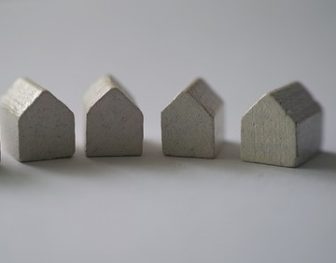 UK house prices rose for the third consecutive month in August, reaching a new record high, as easing borrowing costs and strong wage growth continued to support buyer affordability.
UK house prices rose for the third consecutive month in August, reaching a new record high, as easing borrowing costs and strong wage growth continued to support buyer affordability.
Halifax said on Friday that the average house price climbed 0.3% in August to £299,331, following a 0.4% increase in July. This marks a 2.2% rise year-on-year, pushing property values just above the previous peak recorded in January.
The latest data suggests that the housing market has regained stability after a brief slowdown earlier in the year, triggered by the end of a temporary tax relief on property purchases in April.
Halifax noted that lower mortgage rates and wage growth outpacing inflation are playing a key role in sustaining demand, helping to offset broader economic concerns.
Industry reactions:
Tom Bill, head of UK residential research at Knight Frank:
“Stable mortgage rates have helped the housing market get back on its feet after the April stamp duty cliff edge but high levels of supply mean annual price growth has drifted lower. Although there is a risk that some buyers and sellers hesitate ahead of the Budget, which would increase downwards pressure on prices, others may be keen to accelerate their plans, which would have the opposite effect. It will depend on whether people are more focussed on possible changes to stamp duty or capital gains tax. The former feels too difficult to attempt and the latter feels politically toxic.”
Iain McKenzie, CEO of The Guild of Property Professionals:
“The latest Halifax data reinforces what we’ve seen throughout 2025, a housing market that has remained remarkably steady in the face of wider economic pressures. August marked the third consecutive month of price growth, nudging average values to a new high of just under £300,000. But the real story is stability: since January, prices have risen by less than £600, underlining the balanced conditions we’re operating in.
“Easing borrowing costs have played a central role in supporting buyer confidence. With interest rates now at their lowest level in more than two years, demand has held firm, and we’ve seen healthy levels of activity even through the quieter summer months. Encouragingly, mortgage approvals and transaction volumes are both running ahead of last year.
“That said, there are important headwinds to be mindful of. Inflation remains stubbornly above target, tempering expectations of further rapid rate cuts. At the same time, speculation over housing tax reform in the Autumn Budget is adding a new layer of uncertainty, particularly for buyers and sellers at the higher end of the market. While proposals remain at the discussion stage, we know from experience that the prospect of change alone can affect decision-making.
“For sellers, it is more important than ever to price realistically. Buyers have the upper hand in today’s high-supply market, and properties priced correctly from the outset are moving far quicker than those that need reductions. As we head into the autumn, traditionally a busier period for transactions, setting the right strategy will be key to securing a successful sale.”
Nathan Emerson, CEO at Propertymark:
“With the number of listings, sales agreed, and stock levels higher than this time last year, and with some banks offering specific help to first-time buyers to take their first step onto the housing ladder, this is a sign that the housing market is holding firm.
“However, the latest announcements from the UK Government about reforming Stamp Duty and charging landlords with National Insurance contributions ahead of the next Budget will continue to add further uncertainty for many potential buyers and sellers. This may delay moving plans for a number of people until they know for sure what is likely to happen next. Therefore, we need to see further clarity from the UK Government sooner rather than later.”
Guy Gittins, CEO of Foxtons:
“Following interest rate reductions, improving mortgage affordability and the increasing number of higher loan-to-income ratio products available, we’re now seeing the uplift in mortgage market activity begin to convert into transactional growth. In turn, the rate of house price growth is starting to accelerate.
Market momentum remains steady and this underlying stability is encouraging buyers and sellers back into the fold, albeit with a degree of caution ahead of November’s budget.
Marc von Grundherr, director of Benham and Reeves: “Another month of measured house price growth and the third consecutive monthly increase seen confirms what we’ve been seeing on the ground – a slow but steady market trajectory that demonstrates buyer and seller activity is building, albeit gradually.
“Whilst the market has stabilised considerably in recent months, there’s now a new layer of uncertainty hanging over us as we look towards the Autumn Budget and this is likely to keep many buyers, in particular, sitting on the fence for the short term.
“However, for many, this isn’t about the threat of higher costs or new taxes, but rather the possibility of stamp duty being scrapped altogether. Understandably, buyers are keen to wait and see if such a significant financial barrier is removed and should the government take that step, we can expect a sugar rush of sudden house price inflation as buyer activity is supercharged like never before”
Verona Frankish, CEO of Yopa:
“House prices continue to edge higher, underlining the resilience of the market in the face of wider economic pressures and the continued drive from the nation’s homebuyers to climb the ladder.
“Improved mortgage affordability is encouraging more buyers to return and this is a trend that is only likely to build as we approach the final stretch of 2025 and the rush to complete before Christmas.
“However, the prospect of a stamp duty reform is a powerful incentive which may temper this usual seasonal surge in activity, at least until the dust has settled on the Autumn Budget.”
Read the orginal article: https://propertyindustryeye.com/house-prices-edge-up-as-easing-borrowing-costs-boost-buyer-confidence/


